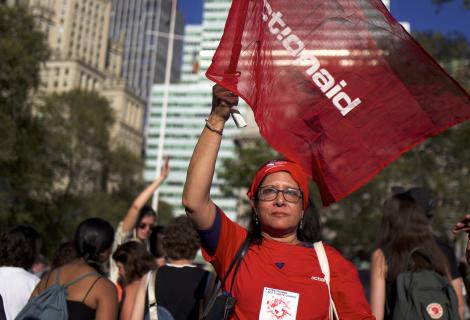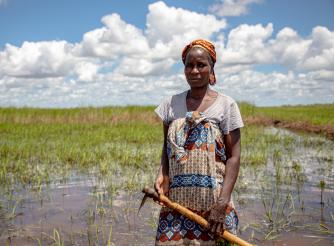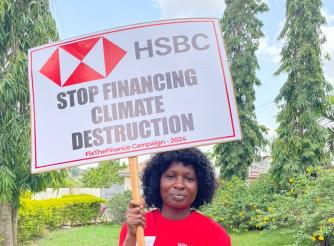The elephant in the room

Farah Kabir is our country director for Bangladesh. In this blog she discusses the SDG Summit in New York.
As I came into New York last week, I felt so excited to join the Global Climate Strike and to listen to and support young people. During the march, right in the middle of day when the sun was at its peak, children and teenagers from different movements and coalitions moved towards Battery Park and you could feel the energy burning. And in those final moments, listening to tomorrow’s adults - including Greta Thunberg - talking about their vision rejuvenated our commitment to call for system change and not climate change.
And yet at the end of the first day of the SDG Summit, convened to review progress towards the SDG goals, I felt only “half full” when I thought about global leadership and political will. This Summit has revealed that our global leaders do not have any real appetite for change at all. This was especially evident at the Civil Society SDG Forum – the first of its kind – that was held at the UN on the evening of the first day of the Summit. The room was full of civil society organisations; there was no Member State Representative aside from the Bulgarian representative. This, despite the entire building being filled with global leaders.
The experience would have left me depressed if it had not been for the voices of young leaders calling for action coming from across the world! Through the many meetings and forums since the march on Friday 20th, they have brought life, hope and inspiration into the processes, strikes and summits. There has been no sugar-coating of issues and the call for action has been - from young people - bold and emphatic.
What struck me the past week in New York is the lack of response to this from global leaders. They have been in hibernation, amidst climate chaos and whilst the planet is burning. One cannot help but wonder what our leaders are made of and why none of this reality penetrates deep enough to get them to act.
The interconnectedness of the three global agendas and processes; the Sendai Framework for Disaster Risk Reduction, the 2030 Agenda and the Paris Agreement, was recognised by different panellists. But there was no agreement for how to make the linkages operational.
In addition, there were no plans to keep coal in the ground, no ideas for how to hold fossil fuel companies to account for the extraction and exploitation they continue to enact at the cost of the environment and communities living in the front line. And no real movement on securing the finance to achieve the 2030 Agenda. In short, it has been tweaking rather than system change.
And those leaders who are but making tweaks do so with an elevated sense of importance. Since Monday its been all about heightened security, blocking of roads, large government motorcades and those “men and women in black” blocking the average person’s space and ‘taking over’.
In the name of security, the level of checking meant that just to get from one room to another we had to show our passports multiple times, including for washroom visits - which reminded me of 1984. And this is for people who actually got to New York; we know many activists and colleagues for whom the checks were so onerous it prevented them from raising their voice to leaders.
I am leaving with the sense that the real issues were not dealt with.
The elephant in the room remains ever present.


